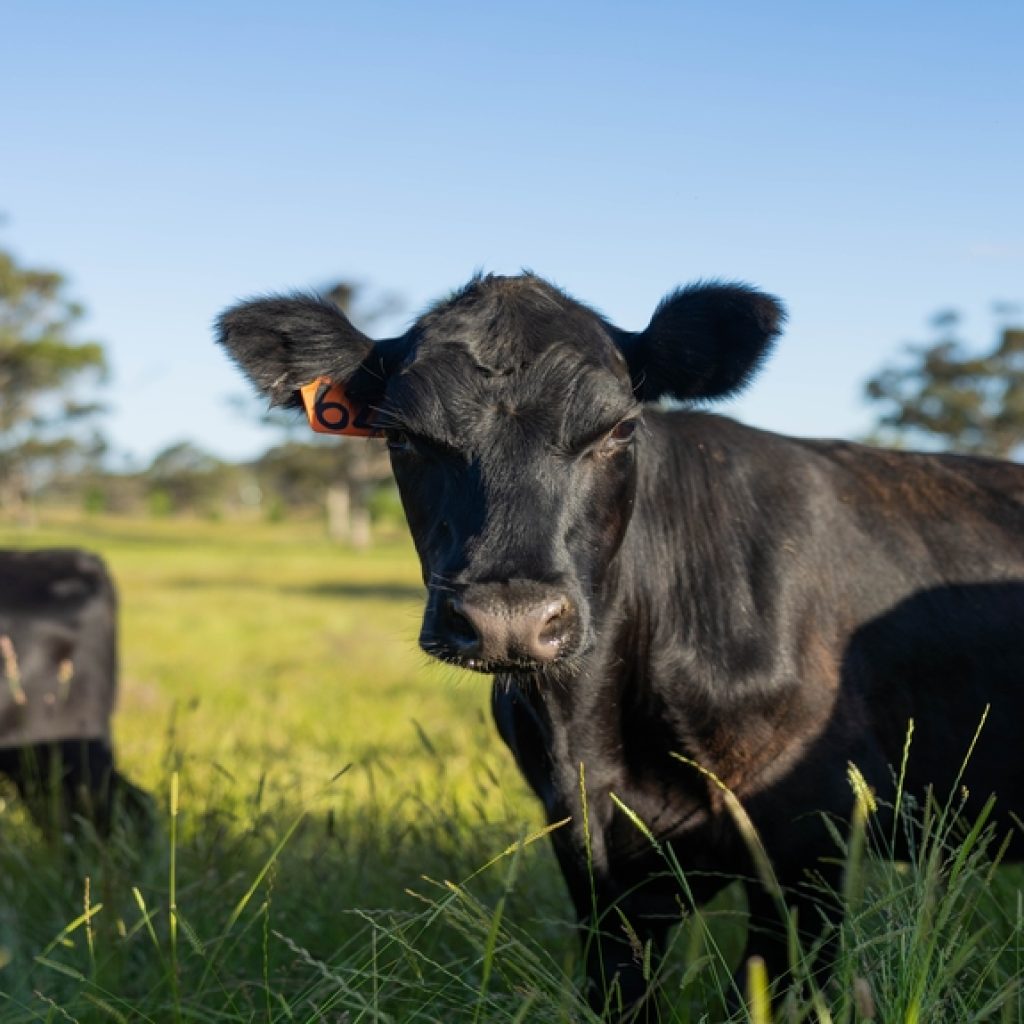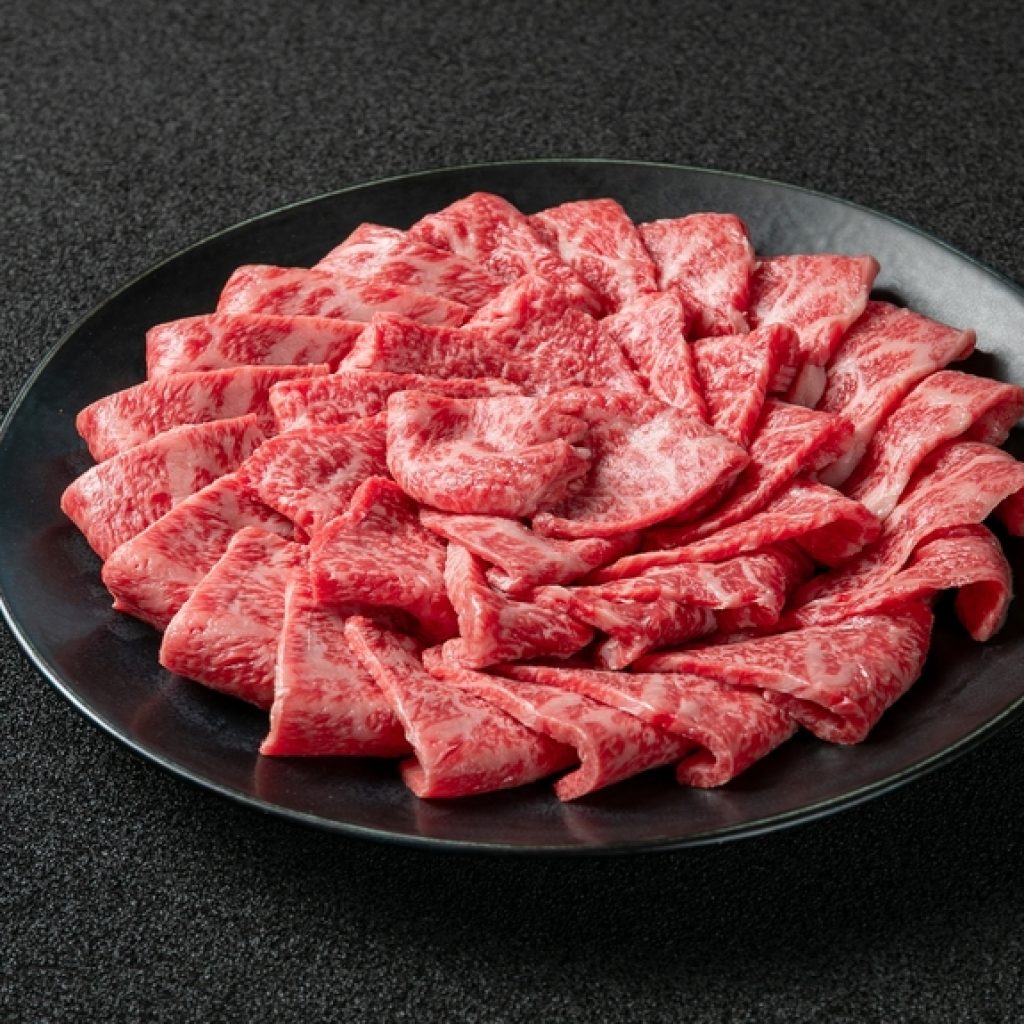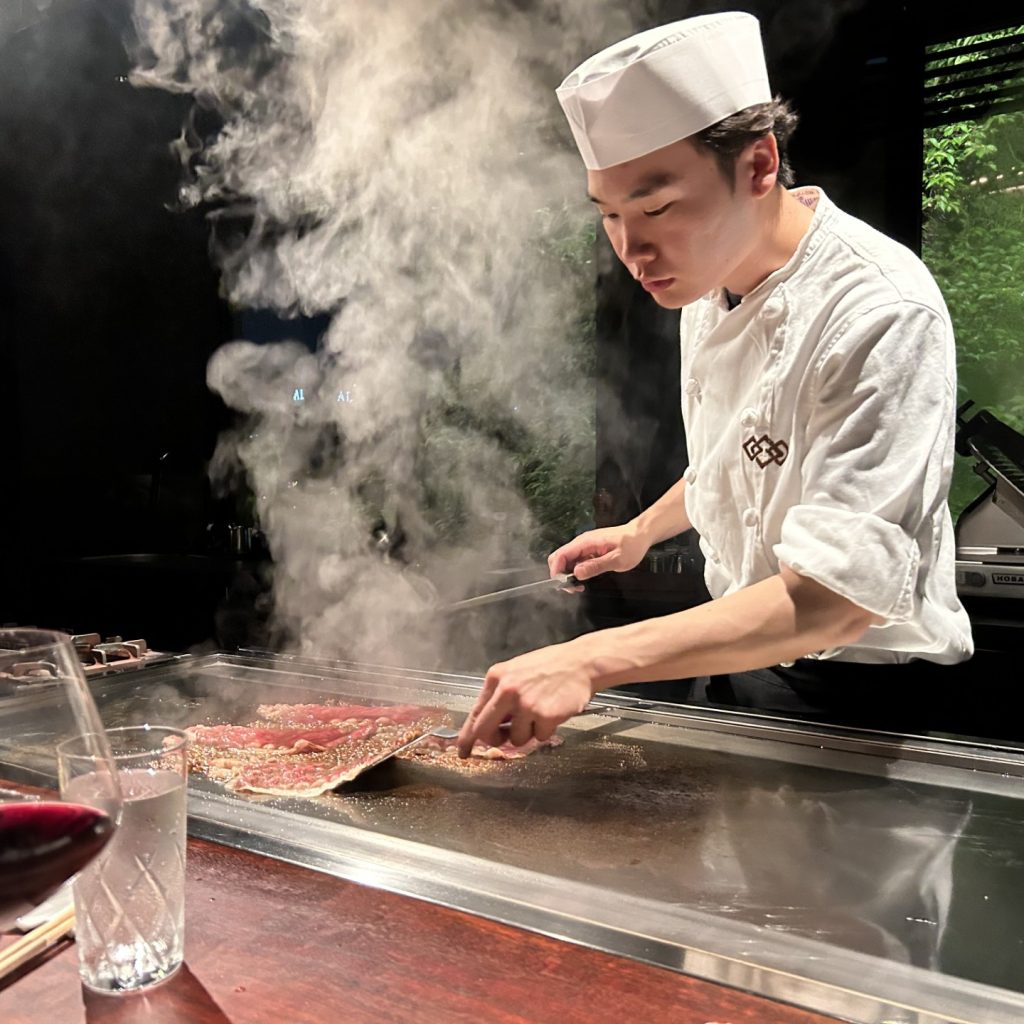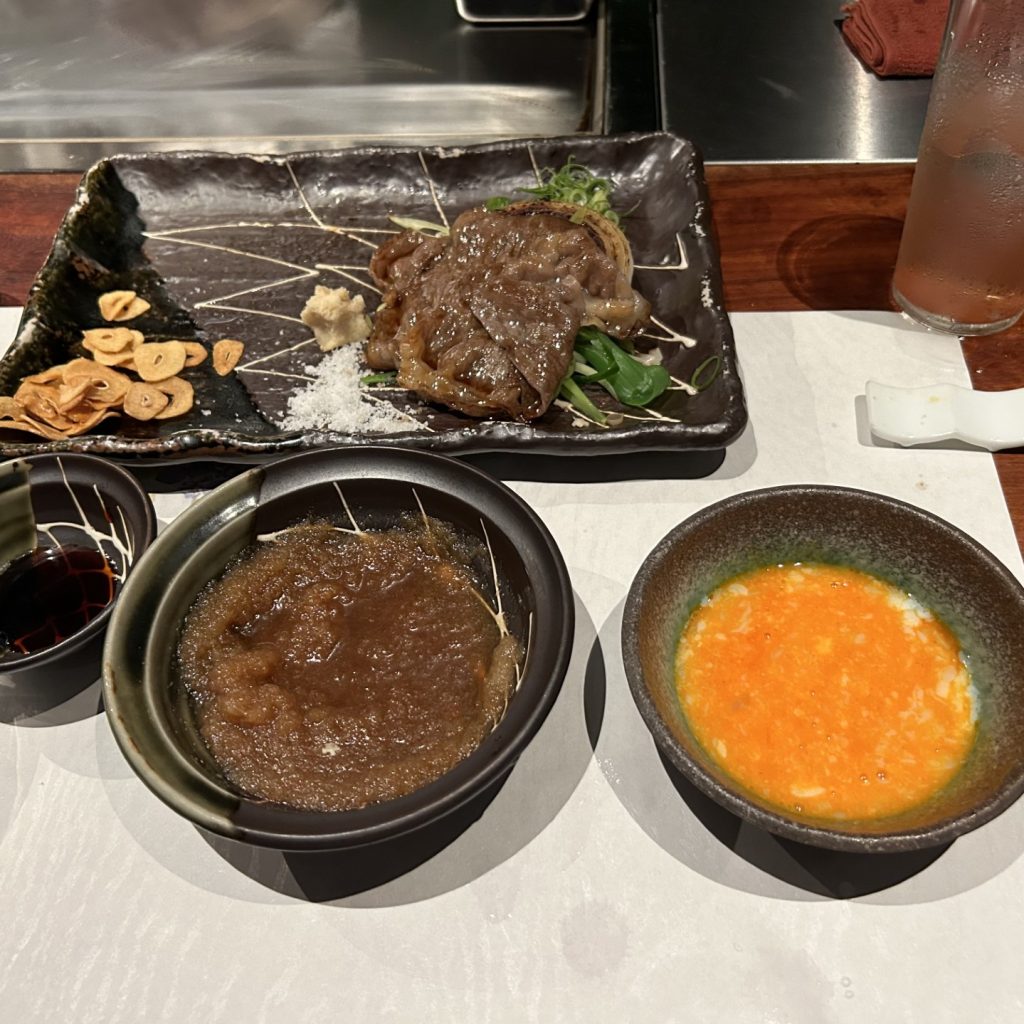
By Zen Lynch
Wagyu is an umbrella term for different Japanese cattle breeds. When put together, wa means Japanese and gyu means cow. Kobe beef is a type of Wagyu. Wagyu is sought after for its intensely marbled beef. Japanese Wagyu cattle produce intramuscular fat as they grow which accumulates and leads to more flavor within the cut of the meat. It is described as rich, so the pieces are sliced thin and served in small portions. While there is an American version of Wagyu, this buttery and hearty flavor is the result of crossbreeding American cattle with purebred Wagyu.
You’ll recognize the most expensive meat in the world by its soft and mellow taste. Strengthening in flavor as it is stored in low-temperature settings, the aged wagyu is as special as it is rare. Its inimitable nature is a result of the meticulously clean environment Wagyu cows are raised in; picture clean air, clean food, and clean water. This is completely incompatible with mass production.

Kobe beef originates from Kobe city in Hyōgo Prefecture. Cattle here are raised on a luxurious diet that includes beer, massages, and constant quality checks. Similar to Wagyu, the high-fat content is the main reason people view these meats as highly desirable delicacies. Kobe’s taste is rich, buttery, and intensely “beefy”. It is both incredibly tender and juicy. People describe it as having a butter-like texture, similar to foie gras, as it melts in your mouth.
Other notable Wagyu in Japan are the Matsusaka beef from the Mie prefecture and Ohmi beef from the Shiga prefecture. Each type of Wagyu offers various taste profiles, which means it is up to the diners to decide which they like best.

In Japan, one of our highly recommended restaurants for Wagyu is Mikaku in Kyoto. Mikaku specializes in Tajima cattle, which are smaller than bulls. They are more challenging to distribute which makes Mikaku an exclusive dining experience. Similar to any other Wagyu breed, the unique flavor profile is revered due to the amount of marbling throughout the meat. With an array of beef cuts like filet and loin, along with other house-made dishes, we feel Mikaku is worth the experience.
